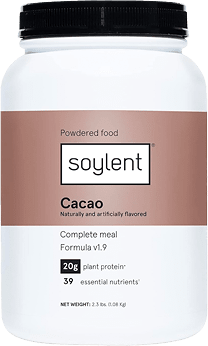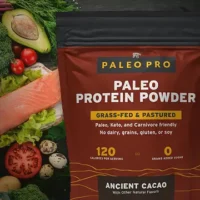Knowledge BaseYou're Questions Answered
How much protein is in soy protein powder?
Soy protein powder is a popular plant-based protein supplement that is known for being a complete protein source. It is made from defatted soy flour and provides a rich profile of essential amino acids. Understanding the protein content in soy protein powder can help individuals plan their dietary intake, especially those looking to increase their protein consumption for muscle building, weight management, or overall health.
Protein Content in Soy Protein Powder
The protein content in soy protein powder varies slightly depending on the brand and processing method. However, on average:
- Standard Serving Size: A typical serving of soy protein powder is around 30 grams (1 scoop).
- Protein per Serving: Most soy protein powders provide approximately 20 to 25 grams of protein per 30-gram serving1.
This protein content is comparable to other popular protein powders, such as whey and casein, making soy protein powder an effective option for those looking to meet their protein needs without using animal-derived products.
Benefits of Soy Protein
- Complete Protein Source: Soy protein contains all nine essential amino acids, making it a complete protein suitable for muscle repair and growth2.
- Plant-Based and Vegan-Friendly: Soy protein powder is an excellent protein source for vegans and vegetarians, as it provides high-quality protein without the use of animal products.
- Heart Health: Some studies suggest that soy protein may contribute to improved heart health by helping to lower cholesterol levels3.
How to Use Soy Protein Powder
Soy protein powder can be incorporated into your diet in various ways:
- Shakes and Smoothies: Blend with water, milk, or plant-based milk and fruits for a protein-rich shake.
- Baking: Add soy protein powder to baked goods like muffins, pancakes, or bread to increase their protein content.
- Oatmeal and Cereal: Stir a scoop into your morning oatmeal or cereal for a protein boost.
- Hoffman, J. R., & Falvo, M. J. (2004). Protein–which is best? Journal of Sports Science & Medicine, 3(3), 118-130.
- Vanga, S. K., & Raghavan, V. (2018). How well do plant and animal protein sources support muscle protein synthesis? International Journal of Environmental Research and Public Health, 15(8), 1703.
- Anderson, J. W., Johnstone, B. M., & Cook-Newell, M. E. (1995). Meta-analysis of the effects of soy protein intake on serum lipids. New England Journal of Medicine, 333(5), 276-282.
Related Questions
Protein vs Protein

Your Answer
We are a participant in the Amazon Services LLC Associates Program, an affiliate advertising program designed to provide a means for us to earn fees by linking to Amazon.com and affiliated sites.



